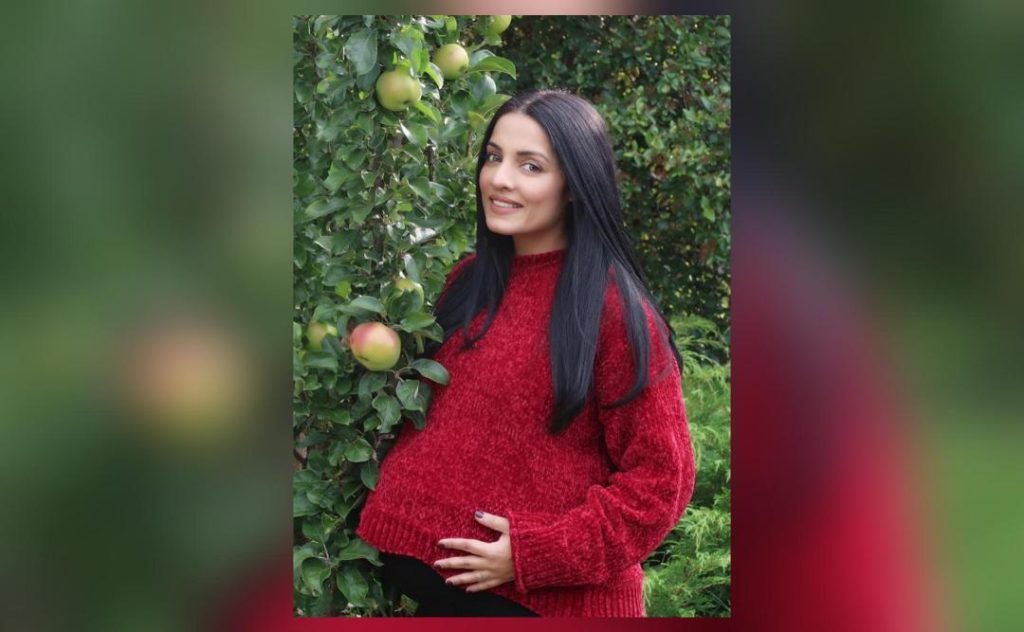
Celina Jaitley Recalls Battling Liver Condition During Pregnancy
Pregnancy is a time of joy and anticipation for many parents-to-be. However, for actress Celina Jaitley, her two pregnancies were marked by a rare and debilitating liver condition that threatened the health of her babies. In a recent post titled “When the itch could have taken my babies,” Celina opened up about her harrowing experience with cholestasis, a condition that she describes as “breaking” her.
Cholestasis, a condition that affects the bile ducts in the liver, is a relatively rare condition that occurs in about 1 in 1,000 pregnancies. However, for Celina, it was a constant companion during both of her pregnancies, causing her immense physical and emotional pain.
“It starts with itching palms, soles and sleepless nights. Cholestasis is a warning from your liver that something’s wrong,” Celina wrote in her post. “I remember those sleepless nights, hushing the kids, trying to get them to sleep, while I was itching from head to toe.”
Celina’s experience with cholestasis began during her first pregnancy, when she was just 24 weeks along. At first, she thought the itching was just a normal part of pregnancy, but as the symptoms worsened, she realized that something was seriously amiss. Her doctor told her that she had developed cholestasis, a condition that required immediate attention.
The symptoms of cholestasis are varied and can include itching, fatigue, dark urine, and jaundice. In severe cases, the condition can lead to premature labor, stillbirth, and even death. For Celina, the thought of losing her babies was a constant and terrifying fear.
“I was so scared, I didn’t know what was happening to me or my babies,” Celina wrote. “I was constantly worried that I might lose them. The itching was unbearable, and I was exhausted all the time. I just wanted my babies to be safe and healthy.”
Despite the challenges she faced, Celina remained determined to do everything in her power to ensure the health and well-being of her babies. She worked closely with her doctor and followed a strict treatment plan to manage her symptoms and reduce the risk of complications.
However, the experience took a toll on Celina’s mental and emotional health. She described feeling “broken” and “helpless” as she struggled to cope with the condition.
“It broke me,” Celina wrote. “I felt like I was losing myself, my sense of self-worth. I was so consumed by fear and worry that I didn’t know who I was anymore.”
After her first pregnancy, Celina thought that she had finally overcome the challenges of cholestasis. However, during her second pregnancy, the condition returned, and she was forced to face the same fears and anxieties all over again.
This time around, Celina was better prepared to manage her symptoms and advocate for herself and her baby. She worked closely with her doctor to develop a treatment plan that would minimize the risk of complications and ensure the health of her baby.
Throughout her journey, Celina was supported by her loved ones, who helped her to stay strong and focused on her goals. She also found solace in sharing her story with others, hoping that it might help to raise awareness about the condition and the importance of early detection and treatment.
“I want to share my story to raise awareness about cholestasis,” Celina wrote. “I want women to know that they are not alone, that they can overcome this condition and have healthy babies. I want to tell them that they are strong, capable, and beautiful, and that they can get through this.”
Celina’s story is a testament to the power of resilience and determination in the face of adversity. Despite the challenges she faced, she remained committed to her goal of becoming a mother and worked tirelessly to ensure the health and well-being of her babies.
For women who are struggling with cholestasis or other pregnancy-related conditions, Celina’s story is a reminder that they are not alone and that there is hope for a healthy and happy outcome. By sharing her story, Celina hopes to raise awareness about this condition and encourage women to seek medical attention if they are experiencing symptoms.
In the end, Celina’s story is a powerful reminder of the importance of self-care, mental health, and advocacy during pregnancy. By speaking out about her experience, Celina hopes to inspire others to do the same and to create a culture of openness and support around pregnancy and parenthood.
As Celina so eloquently put it, “I want to tell them that they are strong, capable, and beautiful, and that they can get through this.”






